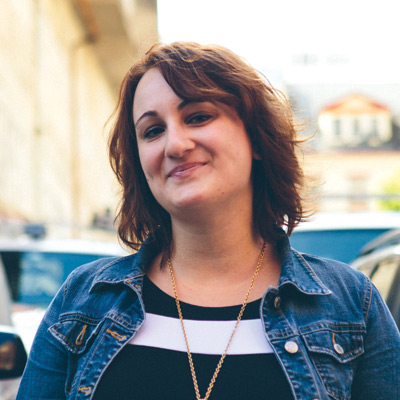The Millennial Revolution: We’re Committed to the City
It’s 9 p.m. on a Saturday night, and my boyfriend and I are driving toward the Philadelphia skyline. We’ve had a lovely evening visiting friends who just bought a house in Ambler. We giggled at old photos, had burgers and beers on the deck, and played board games in a room with track lighting and Yankee Candles. Then we headed back home to Fishtown to begin our evening
“Let’s never move to the suburbs,” my boyfriend says as we sip lagers at our neighborhood dive bar. “I just think we’d be so … boring.”
He’s not alone. For many millennials, suburbia’s white picket fences are looking more and more like cages. In August, Leigh Gallagher, author of the new book The End of the Suburbs, told this magazine, “Millennials don’t really have any interest in this kind of cul-de-sac life. They’re not saying they hate suburbs entirely, but they want to be someplace where they can walk everywhere.”
According to the Center City District, 18-to-34-year-olds now make up more than 40 percent of the Greater Center City population, despite being less than a quarter of the total U.S. population. In Philly Mag’s survey of more than 1,200 local millennials, more respondents saw themselves building their lives in the City of Philadelphia than in the suburbs or other cities.
People my age aren’t supposed to covet McMansions and two-car garages anymore. Instead, we fantasize about refurbishing hip Kensington loft spaces, or owning gutted townhouses on Delancey Street. There’s a reason Lena Dunham set her generation-defining show Girls in Brooklyn and not New Haven. (Worth noting: Gen X’s signature program, My So-Called Life, took place in a fictional suburb of Pittsburgh.)
Part of what makes us covet the concrete jungle instead of developments with names like “Deer Hoof Heights” may have to do with that instant-gratification impulse we’re so famous for. Millennials tweet, text and IM our way through the day. When the new Rihanna album drops, it’s only a few clicks away. We’re impatient when it comes to things we want.
While it’s easy for our boomer bosses and parents to dismiss this as entitlement, we’ve never known the world to be any different. Cities deliver quicker-than-ever access to everything from our morning coffee to late-night drinks. Each night of the week, there’s theater to watch or concerts to see, and fast ways to get there. Insomnia Cookies will deliver freshly baked dessert until 3 a.m. To the give-it-to-me-now generation, this just seems like the way life should be.
But no matter how much we enjoy living in the city and trumpet our ’burb-aversion, Philadelphia’s millennial boom might not last. Contrary to popular belief, millennials are planners, and planning a future in Philadelphia is a fraught endeavor.
The oldest of us are already in our child-rearing years, and there’s nothing about the School District of Philadelphia that looks appealing right now. We’re often called the most educated generation; public schools with shuttered libraries won’t measure up to what we want for our kids. And as a friend who’s 26 says, “I’d have to make a lot of money to send my kids to private school here.” The schools issue is a given, but other, smaller factors could also eventually make a flight to the ’burbs look more palatable, like rising rents, or even the business privilege tax, a huge turn-off for the increasing number of us pursuing freelance or start-up gigs.
This has big implications for the city. To be blunt: If millennials don’t hang around, Philadelphia is kind of … screwed.
Consider the brain drain. Those forward-thinking entrepreneurs will take their new ideas—and their tax dollars—to the nearby suburbs, or to cities more embracing of small business. And that trickles down economically. Part of what makes Philly so vibrant right now is the emergence of independent businesses. Need proof? Stroll down 13th Street and feel the energy of indie commerce pulsating out of all those Marcie-Turney-and-Valerie-Safran establishments. Then think about how many $58 throw pillows they’re selling at Open House every day.
It’s still a bit early to predict what the future holds for Philadelphia and the millennial generation. One possibility is that we’ll relocate to the ’burbs for a while and then return to city living, as many boomers are currently doing. Jenine, 31, who moved to Media in 2009 after living at 23rd and Delancey, says it’s not unlikely she and her husband will move back downtown after their children are raised. In terms of dollars and cents, that might work out for Philly. By the time the oldest offspring of millennials are getting ready to leave for college, the youngest of us will be ready to start families.
But that optimistic scenario still doesn’t account for the role millennials play in Philly’s appeal as a city beyond economics. We bring enthusiasm to culture and nightlife. Our Philadelphia is one where Center City Sips keeps us out until midnight on a Wednesday and Restaurant Week entices us to A.Kitchen on Monday nights.
In theory, this exuberance should only increase as millennials age. But if half of us are hopping trains to Montco, Philadelphia will become an awfully boring place to live.
And then it’s no better off than the suburbs.
>>Click here for more thoughts on the millennial revolution



